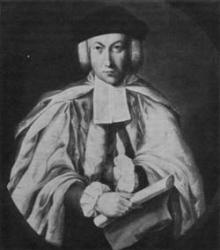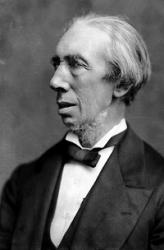Planning worship?
Check out our sister site, ZeteoSearch.org,
for 20+ additional resources related to your search.
- |
User Links
Person Results
‹ Return to hymnal





Export as CSV
Richard Woodward
1743 - 1777 Person Name: Dr. Woodward Scripture: Psalm 24 Hymnal Number: C85 Composer of "[The earth is the LORD'S]" in The Hymnal, Revised and Enlarged, as adopted by the General Convention of the Protestant Episcopal Church in the United States of America in the year of our Lord 1892 Woodward, Richard, jr; b. 1743?; d. Dublin, 22 Nov. 1777; Anglo-Irish organist and composer
LOC Name Authority File
Richard Woodward
John Alcock

1715 - 1806 Person Name: Dr. J. Alcock Scripture: Psalm 67 Hymnal Number: C63 Composer of "[God be merciful unto us and bless us]" in The Hymnal, Revised and Enlarged, as adopted by the General Convention of the Protestant Episcopal Church in the United States of America in the year of our Lord 1892 John Alcock, doctor of music, was born in London, April 11, 1715; he composed songs, church music, glees, anthems, instrumental music, chantes, etc., and obtained the prize at the Catch Club; died at Lichfield, 1806, aged 91.
A Dictionary of Musical Information by John W. Moore, Boston: Oliver, Ditson & Company, 1876
John Alcock
William Crotch

1775 - 1847 Person Name: Dr. Crotch Scripture: Psalm 67 Hymnal Number: C64 Composer of "[God be merciful unto us and bless us]" in The Hymnal, Revised and Enlarged, as adopted by the General Convention of the Protestant Episcopal Church in the United States of America in the year of our Lord 1892 William Crotch (5 July 1775 – 29 December 1847) was an English composer, organist and artist.
Born in Norwich, Norfolk to a master carpenter he showed early musical talent as a child prodigy. The three and a half year old Master William Crotch was taken to London by his ambitious mother, where he not only played on the organ of the Chapel Royal in St James's Palace, but for King George III. The London Magazine of April 1779 records:
He appears to be fondest of solemn tunes and church musick, particularly the 104th Psalm. As soon as he has finished a regular tune, or part of a tune, or played some little fancy notes of his own, he stops, and has some of the pranks of a wanton boy; some of the company then generally give him a cake, an apple, or an orange, to induce him to play again...
Crotch was later to observe that this experience led him to become a rather spoiled child, excessively indulged so that he would perform.
He was for a time organist at Christ Church, Oxford, from which he was later to graduate with a Bachelor of Music degree.
His composition The Captivity of Judah was played at Trinity Hall, Cambridge, on 4 June 1789; his most successful composition in adulthood was the oratorio Palestine (1812). He may have composed the Westminster Chimes in 1793.
In 1797 Crotch was given a professorship at Oxford University, and in 1799 he acquired a doctorate in music. While at Oxford, he became acquainted with the musician and artist John Malchair, and took up sketching. He followed Malchair's style in recording the exact time and date of each of his pictures, and when he met John Constable in London in 1805, he passed the habit along to the more famous artist.
In 1834, to commemorate the installation of the Duke of Wellington as chancellor of the University of Oxford, Crotch penned a second oratorio titled The Captivity of Judah. The 1834 work bears little resemblance to the oratorio he wrote as a child in 1789.
In 1822, Crotch was appointed to the Royal Academy of Music as its first Principal, but resigned ten years later.[2] He spent his last years at his son's house in Taunton, Somerset, where he died suddenly in 1847. Among his notable pupils were William Sterndale Bennett, Lucy Anderson, Stephen Codman, George Job Elvey, Cipriani Potter, and Charles Kensington Salaman
--en.wikipedia.org/
William Crotch
C. W. Corfe
Person Name: Dr. Corfe Scripture: Psalm 67 Hymnal Number: C66 Composer of "[God be merciful unto us and bless us]" in The Hymnal, Revised and Enlarged, as adopted by the General Convention of the Protestant Episcopal Church in the United States of America in the year of our Lord 1892
C. W. Corfe
George A. Macfarren

1813 - 1887 Person Name: Dr. G. A. Macfarren Scripture: Psalm 67 Hymnal Number: C67 Composer of "[God be merciful unto us and bless us]" in The Hymnal, Revised and Enlarged, as adopted by the General Convention of the Protestant Episcopal Church in the United States of America in the year of our Lord 1892 George Alexander Macfarren, Mus. Doc.; b. London, 1813; d. London, 1887
Evangelical Lutheran Hymnal, 1908
=======================
Born: March 2, 1813, Westminster, England.
Died: October 31, 1887, St. Marylebone, England.
Buried: Hampstead Cemetery, London, England.
Brother of Walter Macfarren, George was a principal of the Royal Academy of Music; professor at Cambridge University; conductor at Covent Garden, London; program note writer for the Philharmonic Society; and editor of Handel and Purcell. He wrote 18 operas, 13 oratorios and cantatas, 9 symphonies, and 162 songs. He went blind in 1860, and was knighted in 1883.
Sources:
Frost, p. 681
Lightwood, p. 189
Nutter, p. 460
http://www.hymntime.com/tch/bio/m/a/c/macfarren_ga.htm
===============================
http://en.wikipedia.org/wiki/George_Alexander_Macfarren
George A. Macfarren
Joseph Robinson
1815 - 1898 Person Name: Dr. Joseph Robinson Scripture: Psalm 67 Hymnal Number: C68 Composer of "[God be merciful unto us and bless us]" in The Hymnal, Revised and Enlarged, as adopted by the General Convention of the Protestant Episcopal Church in the United States of America in the year of our Lord 1892
Joseph Robinson
Edward F. Rimbault

1816 - 1876 Person Name: Dr. Rimbault Scripture: Psalm 92 Hymnal Number: C48 Composer of "[It is a good thing to give thanks]" in The Hymnal, Revised and Enlarged, as adopted by the General Convention of the Protestant Episcopal Church in the United States of America in the year of our Lord 1892 Edward Francis Rimbault PhD LLD United Kingdom 1816-1876. Born in Soho, London, England, son of an organist and composer of French descent, he was taught music by his father., Samuel Wesley, and Wiliam Crotch. At age 16 he became organist of the Swiss Church in Soho. He later became organist at various churches, including St Peter’s, Vere Street, and St John’s Wood Presbyterian Church. He edited many collections of music, journals, and publications of music, and arranged music compositions. In addition to editing or arranging contemporary operas, he had a strong interest in editing or arranging earlier English music. He studied the musical treatises in the library of Archbishop Tenison, one of the oldest public libraries in London. In 1838, At age 22 he began lecturing about the history of English music, and was in much demand due to the interest aroused. He did editorial work for the Percy Society, the Camden Society, the Motet Society, and the Handel Society. For the latter he edited the “Messiah”, “Saul”, and “Samson” He was elected a Fellow of the Society of Antiquaries, and was granted membership in the Academy of Music in Stockholm, Sweden. Gottingen University also conferred upon him a PhD. His reputation was such that he was offered a teaching position at Harvard University in the U.S., which he turned down. In 1848 he was given an honorary degree by the University of Oxford. In 1849 he published a collection of English nursery rhymes and the tunes to which they were sung. Rimbault authored 76 books, a few named here include : “Bibliotheca madrigaliana” (1847); “The pianoforte” (1860); “Early English organ builders and their works” (1865). In 1855 he co-authored “The organ- its history and construction” with John Hopkins. He did a small amount of composing as well. He wrote an operetta in 1838, and a musical drama. He also composed a large number of pianoforte scores for operas by others. He was an admirable harmonium player. Traveling to various auctions for years, he accumulated a rare collection of books. After his death his extensive collection was auctioned off in 1877, with many items going to the British Library. About 300 items were sold to an individual, and upon his death in 1888, the ‘Drexel collection’ was bequeathed to the Lenox Library (precursor of the New York Public Library). Today, the collection is part of the Music Division of the NY Public Library for the Performing Arts. He was an author, editor, arranger, composer, lithographer, translator, scribe, adapter, and bookseller. He died at London, England. No information found regarding a family.
John Perry
Edward F. Rimbault
F. A. Gore Ouseley

1825 - 1889 Person Name: Rev. Sir F. A. G. Ouseley Scripture: Psalm 92 Hymnal Number: C49 Composer of "[It is a good thing to give thanks]" in The Hymnal, Revised and Enlarged, as adopted by the General Convention of the Protestant Episcopal Church in the United States of America in the year of our Lord 1892 Born: August 12, 1825, London, England.
Died: April 6, 1889, Hereford, England.
Buried: Church of St. Michael and All Angels, Tenbury Wells, Hereford and Worcester, England.
Gore-Ouseley was educated at Oxford University (BA 1846, MA 1849, DMus 1854), and was ordained in 1849. In 1855, he was appointed Oxford Professor of Music, succeeding Henry Bishop. At that time, Oxford music degrees were easy to obtain, as there were no conditions of residence. Candidates only had to submit a musical composition, (e.g., for choir or orchestra). This was then approved by the examiner, rehearsed and performed to a small, select audience at Oxford. As far as Ouseley was concerned, this only meant two or three trips to Oxford each year, usually for two or three days each time, as there was no music "taught" in the university and very little in Oxford itself at the time.
Also in 1855, Ouseley was appointed Precentor of Hereford Cathedral, a post he held for the next 30 years, before becoming a Canon there. Although theoretically in charge of the cathedral choir, Ouseley only had to be in residence at the cathedral two months each year, and he arranged these to take place during the summer vacation, when he was not required to be at his College, although such was his commitment that he did make regular visits to the cathedral, which was only 18 miles from his College at St. Michael’s.
His College of St. Michael’s, Tenbury, a "model" choir school, opened in 1856, mostly at his own expense. He founded the College and was its first Warden, which was the greater part of his work for the next 33 years.
Ouseley’s compositions covered a wide range: operas, songs, chamber music and organ pieces. His works include the following treatises:
Harmony (London: 1868)
Counterpoint (London: 1869)
Canon and Fugue (London: 1869)
Form and General Composition (London: 1875)
--www.hymntime.com/tch/
F. A. Gore Ouseley
Jonathan Battishill
1738 - 1801 Person Name: J. Battishill Scripture: Psalm 92 Hymnal Number: C50 Composer of "[It is a good thing to give thanks]" in The Hymnal, Revised and Enlarged, as adopted by the General Convention of the Protestant Episcopal Church in the United States of America in the year of our Lord 1892 Jonathan Battishill born in London, 1738; composer of operas, sacred music and glees. He died at Islington, December 9, 1801.
A Dictionary of Musical Information by John Weeks Moore, O. Ditson, Boston, c. 1876
Jonathan Battishill
William Felton
1715 - 1769 Person Name: Rev. W. Felton Scripture: Psalm 92 Hymnal Number: C51 Composer of "[It is a good thing to give thanks]" in The Hymnal, Revised and Enlarged, as adopted by the General Convention of the Protestant Episcopal Church in the United States of America in the year of our Lord 1892
William Felton


 My Starred Hymns
My Starred Hymns


